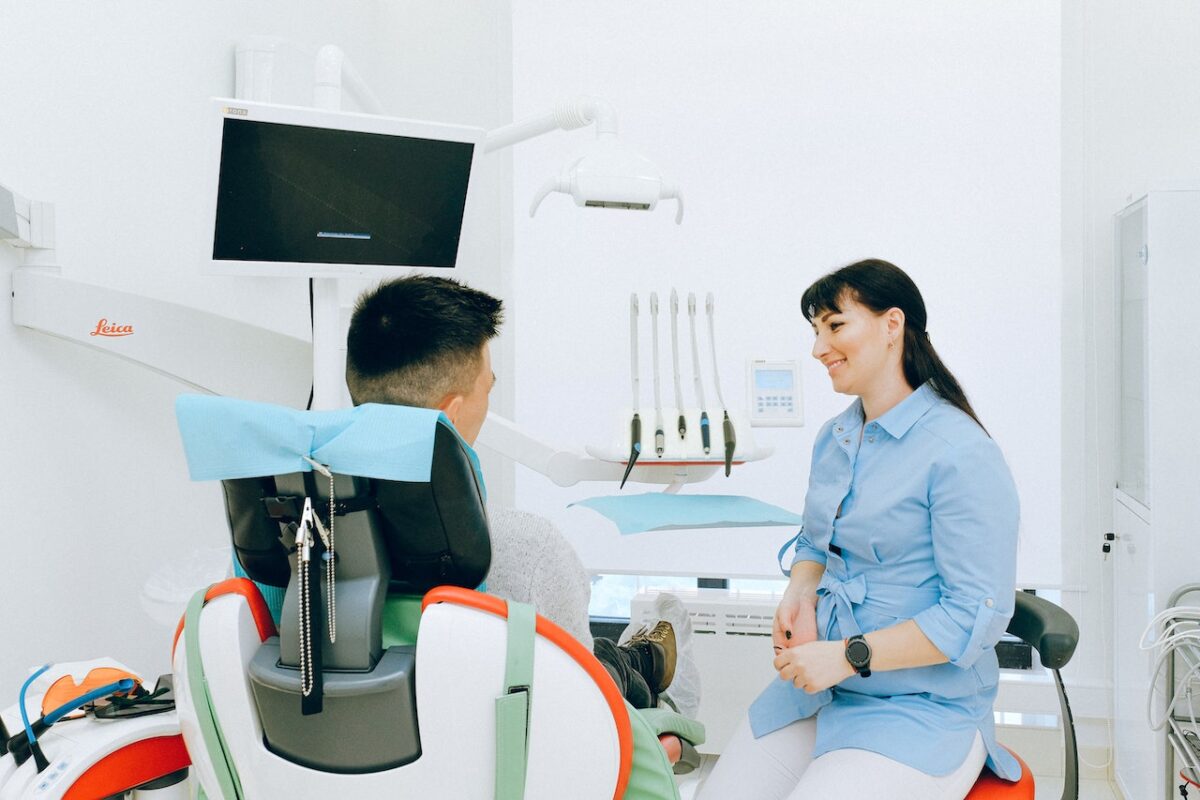As we age, our bodies go through various changes, and oral health is no exception. Taking care of our teeth becomes even more crucial as we grow older, as dental problems can have a significant impact on our overall well-being. In this article, we will explore effective strategies and practical tips to ensure optimal dental health as you age.
Maintaining good dental hygiene throughout our lives is essential, but it becomes increasingly vital as we get older. Neglecting oral health can lead to various issues such as gum disease, tooth loss, and even systemic health problems. By adopting proper dental care practices and seeking regular professional assistance, you can preserve your natural teeth and enjoy a healthy smile well into your golden years. Learn more.
Understanding Dental Health
Importance of Dental Health
Dental health plays a crucial role in our overall well-being. Healthy teeth and gums allow us to chew properly, speak clearly, and maintain self-confidence. Additionally, research has shown a connection between oral health and systemic diseases such as diabetes, cardiovascular diseases, and respiratory infections. By taking care of our teeth, we can reduce the risk of developing these conditions.
Common Dental Issues
As we age, certain dental issues become more prevalent. These include tooth decay, gum disease, tooth sensitivity, dry mouth, and tooth loss. Understanding these problems and their causes is the first step in effectively addressing them.
Dental Care Tips for Aging Teeth
To maintain excellent oral health as you age, follow these practical tips:
1. Brushing and Flossing Techniques
Proper brushing and flossing techniques are fundamental to dental care. Use a soft-bristled toothbrush and fluoride toothpaste. Brush your teeth at least twice a day for two minutes each time, focusing on all tooth surfaces. Additionally, floss daily to remove plaque and food particles from between your teeth.
2. Choosing the Right Toothbrush and Toothpaste
Selecting the right toothbrush and toothpaste is crucial. Opt for a toothbrush with a small head and soft bristles to prevent gum damage. Fluoride toothpaste helps strengthen tooth enamel and protect against cavities.
3. Regular Dental Check-ups
Regular visits to the dentist are essential, even if you have no apparent dental problems. Dental professionals can detect early signs of issues, provide preventive care, and offer personalized advice. Aim for biannual check-ups unless your dentist recommends otherwise.
4. Maintaining a Healthy Diet
A balanced diet plays a significant role in maintaining dental health. Limit sugary and acidic foods and beverages, as they can contribute to tooth decay. Instead, focus on consuming a variety of fruits, vegetables, lean proteins, and dairy products that promote healthy teeth and gums.
5. Avoiding Harmful Habits
Certain habits can harm your teeth and oral health. Avoid smoking and excessive alcohol consumption, as they increase the risk of gum disease, oral cancer, and tooth loss. Additionally, avoid chewing on hard objects or using your teeth as tools, as this can lead to tooth fractures.
Special Considerations for Denture Wearers
If you wear dentures, proper care is essential to maintain both your oral health and the longevity of your dentures. Clean your dentures daily using a non-abrasive denture cleanser. Remove them overnight to give your gums a chance to rest. Additionally, schedule regular check-ups with your dentist to ensure the proper fit of your dentures.
Dealing with Sensitivity and Dry Mouth
Tooth sensitivity and dry mouth are common issues that can arise as we age. Use desensitizing toothpaste to alleviate tooth sensitivity and consult your dentist for further guidance. For dry mouth, stay hydrated, avoid caffeine and alcohol, and consider using artificial saliva substitutes.
The Role of Dental Professionals
Dental professionals play a crucial role in maintaining your oral health. Dentists, dental hygienists, and periodontists possess the expertise to diagnose, treat, and prevent dental problems. Build a strong partnership with your dental team to ensure comprehensive care and address any concerns promptly.
Importance of Regular Dental Cleanings
Professional dental cleanings are essential, even if you follow a diligent oral hygiene routine at home. Dental cleanings remove plaque and tartar buildup, which can lead to gum disease and tooth decay. Regular cleanings help maintain healthy gums, prevent tooth loss, and contribute to overall oral health.
Conclusion
Caring for your teeth as you age is crucial for maintaining good oral health and overall well-being. By following proper dental care practices, adopting healthy habits, and seeking professional assistance, you can enjoy a beautiful smile and optimal dental health throughout your life. Remember, it’s never too late to prioritize your oral health and take steps towards a healthier future.
Frequently Asked Questions (FAQs)
1. Is it necessary to visit the dentist if I have no dental problems? Regular dental check-ups are vital, even if you don’t have apparent dental issues. Dentists can detect early signs of problems and provide preventive care to maintain your oral health.
2. How often should I brush my teeth? You should brush your teeth at least twice a day, preferably after meals. Use fluoride toothpaste and brush for two minutes each time.
3. Can aging cause tooth loss? While aging itself does not directly cause tooth loss, it increases the risk of dental issues that can lead to tooth loss. Proper dental care and regular check-ups can help prevent this.
4. Can I prevent sensitivity in my teeth? Tooth sensitivity can be prevented or reduced by using desensitizing toothpaste and maintaining good oral hygiene. Consult your dentist for personalized advice.
5. What should I do if I wear dentures? If you wear dentures, ensure proper care by cleaning them daily and removing them overnight. Schedule regular check-ups with your dentist for adjustments and maintenance.

